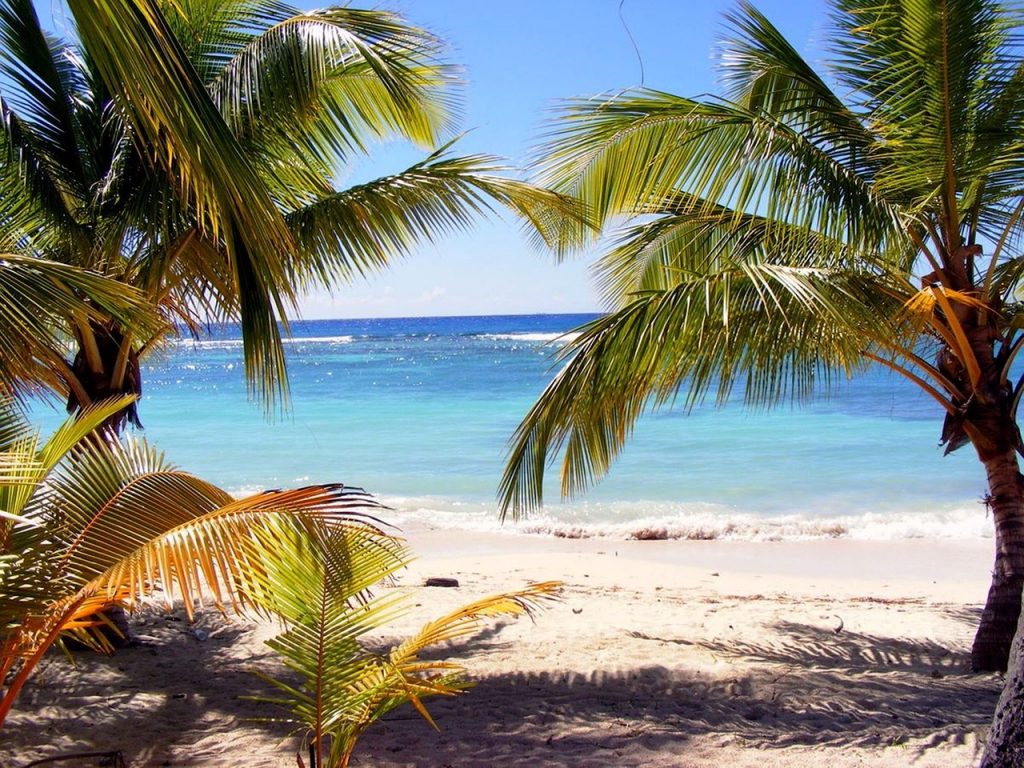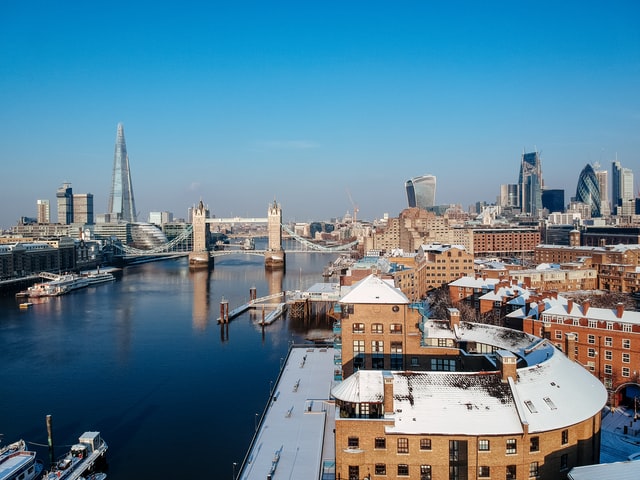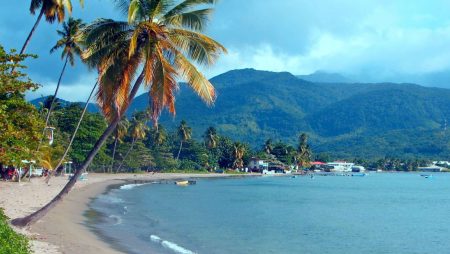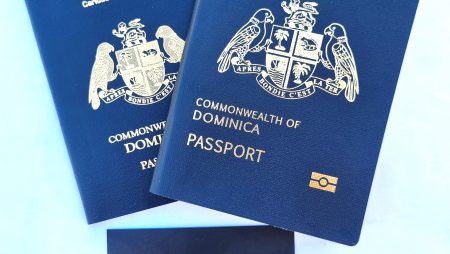
How to Travel to Citizenship and Residency by Investment Countries in December 2021

The COVID-19 continues to spread across the globe. With a new wave of disease variant named Omicron, and a growing caseload, countries worldwide implement new safety measures or change the existing ones daily, particularly when it comes to international and domestic travel requirements. What is the situation with visiting the major citizenship and residency by investment destinations: St Kitts and Nevis, Dominica, Grenada, St Lucia, Antigua and Barbuda, Vanuatu, Montenegro, United Kingdom, Portugal, Malta, Cyprus, and Turkey. Which countries are ready to welcome tourists back and which, on the contrary, have suspended entry? What requirements are there to comply with while travelling? We have prepared this digest article to guide you through the latest in the ever-changing travel rules and regulations.
Caribbean countries
St Kitts and Nevis
With exemptions made for nationals and residents of St Kitts and Nevis, only fully vaccinated visitors and children under the age of 18 accompanying a fully vaccinated parent or guardian are allowed to enter the country. To be considered fully vaccinated, at least 14 days must have passed since an individual received the final dose of an approved vaccine: Johnson & Johnson, Pfizer/BioNTech, Moderna, Oxford/AstraZeneca, Sinopharm or Sinovac. Mixing of the approved vaccines is accepted.
Foreign travellers must take a COVID-19 PCR test no later than 72 hours before departure. On receiving a negative result, they have to complete an embarkation form, upload the test result and certificate of vaccination on the government website within 24 hours prior to entry and download the SKN COVID-19 contact tracing mobile app. Proof of having booked a hotel from the approved list is also needed.
Additional tests will be conducted on days 7 and 14 of the visit, at the traveller’s expense. Vaccinated travellers will be tested on day 4. Arrivals are required to stay in an approved hotel and wait for the test results. Besides, a health screening and completing a questionnaire must be done at the place of the entry point.
Dominica
Although Dominica is open for international tourism, it has established travel protocols specifying entry requirements. According to them, all foreign visitors must submit a negative result of COVID-19 PCR test taken within the 72 hours prior to arrival, as well as complete an online questionnaire at least 24 hours before entry. The Ministry of Health must verify the traveller’s arrival by email, otherwise, they will not be able to board the flight into Dominica. Fully vaccinated visitors also need to provide their certificate of vaccination. As for unvaccinated travellers, they are required to have booked a government-approved “Safe in Nature” accommodation.
On arrival, all passengers, regardless of their vaccination status, have to undergo a Rapid Antigen Test and health assessment. Unvaccinated visitors are subject to a mandatory 5-day quarantine at a “Safe in Nature” property and a second PCR test on day 5. If the result is negative, they are released from the quarantine.

Grenada
Unfortunately, passengers are not allowed to enter Grenada, the state of emergency has been extended. However, this does not apply to passengers with a COVID-19 vaccination certificate showing that they were fully vaccinated at least two weeks before arrival, as well as their accompanying children younger than 12 years (accepted vaccines are AstraZeneca (Vaxzevria), AstraZeneca (SK Bioscience Co Ltd. from Korea), Covishield Janssen, Moderna (Spikevax), Pfizer-BioNTech (Comirnaty), Sinopharm, and Sinovac). Any passengers arriving from or who have been in Botswana, Eswatini, Lesotho, Namibia, South Africa, and Zimbabwe in the past 14 days are not allowed to enter Grenada.
Arrivals to Grenada must have a “Travel Health Declaration” obtained at least 48 hours before departure. Guests of the country must have a negative result of the COVID-19 PCR test taken no later than 72 hours before departure of the last direct flight to Grenada. This does not apply to children younger than 5 years. One more test for unvaccinated visitors has to be taken upon arrival at their own expense. Besides, they must stay under quarantine for 7 days at a government-approved accommodation. Passengers must undergo medical screening on arrival and download Grenada’s tracing app.
St Lucia
St Lucia welcomes foreign tourists as long as they meet a number of requirements. All tourists arriving in the country, whether they are fully vaccinated or not, must submit a negative result of COVID-19 PCR test taken within the 5 days (120 hours) before arrival. Passengers will be refused boarding if they do not provide the negative test result. Travellers under the age of 5 are exempt from this requirement.
In addition, visitors must complete a registration form 24 hours prior to arrival to receive travel authorisation. They also need to have a confirmed reservation of a government-approved COVID-19 certified property and provide their evidence of vaccination, if any. All incoming passengers are subject to a 14-day quarantine on arrival, except fully vaccinated ones — they are not required to undergo quarantine.
Antigua and Barbuda
The islands of Antigua and Barbuda are open for arrivals, however, currently, the state of emergency is in force. Passengers older than 5 years entering or transiting through Antigua and Barbuda must have a negative COVID-19 RT-PCR test result taken no later than 4 days before departure from the first embarkation point. Fully vaccinated arrivals can present a negative COVID-19 antigen test taken at most 3 days before departure from the first embarkation point instead. Another COVID-19 test has to be taken upon arrival. Passengers older than 18 years must provide a COVID-19 vaccination certificate showing that they received one dose of the vaccine before arrival (the accepted vaccines are: AstraZeneca (SK Bioscience), AstraZeneca (Vaxzevria), Covishield, Janssen, Moderna (Spikevax), Pfizer-BioNTech (Comirnaty), Sinopharm, Sinovac, and Sputnik V). All arrivals except for fully vaccinated are subject to quarantine in approved accommodation for up to 14 days. Passengers staying overnight in transit must stay at a hotel or at a designated facility until their next flight. Passengers arriving from or who have transited through Belgium, Botswana, Hong Kong, and South Africa in the past 14 days are not allowed to enter.
Pacific Ocean
Vanuatu
Vanuatu’s borders are currently closed until 31 December 2021. Passengers with citizenship, residency and a residence visa of Vanuatu are exempt from the arrival ban. Arrivals must have a COVID-19 vaccination certificate showing that they were vaccinated with Janssen at least 28 days before departure or they were fully vaccinated with AstraZeneca (SK Bioscience), AstraZeneca (Vaxzevria), Covishield, Moderna (Spikevax), Pfizer-BioNTech (Comirnaty), Sinopharm or Sinovac at least 14 days before departure. They must also have a negative COVID-19 PCR test taken no later than 72 hours before departure from the first embarkation point.
Besides, an Online Travelers Health Registration Form has to be completed no longer than 72 hours before departure. A completed Airport Health Screening Form must be presented to immigration service upon arrival. Passengers are subject to medical screening, a COVID-19 test upon arrival, and quarantine for 14 days at their own expense.
European countries
Montenegro
Tourists are allowed to visit Montenegro provided they comply with the existing entry requirements. All incoming travellers must submit one of the following:
- Negative result of COVID-19 PCR test taken no later than 72 hours before arrival;
- Negative result of Rapid Antigen Test taken no later than 48 hours before arrival;
- Positive result of PCR / Rapid Antigen Test issued at least 14 days and at most 180 days before arrival and a COVID-19 recovery certificate;
- Certificate of vaccination.
These requirements do not apply to passengers younger than 5 years; passengers with a COVID-19 vaccination certificate issued in Hungary, and their accompanying minors younger than 18 years; passengers who in the past 15 days have only been in Albania, Bosnia and Herzegovina, Croatia, Cyprus, Kosovo (Rep.), North Macedonia (Rep.), or Serbia.
Children under the age of 18, nationals and residents of Montenegro, and passengers with vaccination certificates issued in Hungary are not required to submit any of the documents listed above. Tourists travelling from the UK may enter Montenegro without a test or evidence of vaccination, but they are subject to self-isolation for 14 days. This period can be terminated after six days, with a negative PCR test.
Malta
Malta requires its guests to be fully vaccinated. Travellers aged 12 and over must submit a certificate of vaccination, showing that they have received a full dosage of a European Medicines Agency (EMA) approved vaccine at least 14 days before arrival. The approved vaccines are Pfizer/BioNTech, Johnson & Johnson, Moderna, Oxford/AstraZeneca. Certificates showing recovery from COVID-19 in the previous six months plus one dose of an EMA-approved two-dose vaccine provided at least 14 days prior to arriving in Malta, are also accepted. It is important to note that certificates of recovery from COVID-19 without a vaccine are not valid for entry.
All arrivals to Malta must complete a Public Health Travel Declaration Form and the online Passenger Locator Form before departure. Travellers without a certificate of vaccination have to provide a negative PCR test taken within 72 hours prior to their arrival and are subject to a mandatory 14-day quarantine.
Flights from Botswana, Eswatini, Lesotho, Namibia, South Africa and Zimbabwe are suspended.
United Kingdom
The UK sets different entry requirements for travellers, depending on their vaccination status. However, there is a rule mandatory for everyone arriving in the country: all visitors must complete a Passenger Locator Form within 48 hours before arrival. Passengers entering or transiting through the UK must have a negative COVID-19 PCR test result. The test must have been taken no later than 3 days before departure of the last direct flight to the United Kingdom.
Along with this, fully vaccinated travellers need to provide their certificate of vaccination. The approved vaccines are Pfizer/BioNTech, Oxford/AstraZeneca, Moderna, Johnson & Johnson; since 22 November 2021, Sinovac, Sinopharm, and Covaxin have been added. Mixing of the approved vaccines is accepted. On arrival, vaccinated guests are also required to take a COVID-19 test on day 2, which should be booked and paid in advance. If the test result is positive, the travellers have to quarantine for 10 days.
Visitors who are not fully vaccinated must submit a negative result of the COVID-19 PCR test taken within 72 hours before arrival, as well as book and pay for two more PCR tests. On arrival, these tests are taken on days 2 and 8. Unvaccinated travellers are subject to a 10-day quarantine.

Cyprus
Cyprus allows the following categories of visitors to enter:
- Those who have recovered from COVID-19. They are required to provide a Digital COVID Recovery certificate (no other certificates are accepted);
- Visitors who have recovered from COVID-19 and received one dose of an approved two-dose vaccine. They have to submit the correspondent certificates;
- Fully vaccinated visitors who must provide their certificate of vaccination.
The vaccines recognized by Cyprus are Pfizer/BioNTech, Johnson & Johnson, Moderna, Oxford/AstraZeneca, Sputnik, Sinopharm, and Sinovac. Mixing of the approved vaccines is accepted.
All passengers arriving in Cyprus must apply for and obtain a Cyprus Flight Pass before arrival. Visitors from the Red List countries who have not completed a vaccination program must take a COVID-19 PCR test and provide a negative result. Children under 12 are exempted from this requirement.
Passengers are not allowed to enter if arriving from or if in the past 14 days they have been in or transited through, Botswana, Eswatini, Lesotho, Malawi, Mozambique, Namibia, South Africa, or Zimbabwe. Permitted passengers from these countries must quarantine for 10 days in a hotel arranged by the Ministry of Tourism, at their own expense.
Portugal
It is possible to travel to Portugal for any purposes from the EU, EEA or UK, as well as from some other countries: Albania, Brazil, Saudi Arabia, Armenia, Australia, Azerbaijan, Bosnia and Herzegovina, Brunei, Canada, South Korea, Japan, Jordan, New Zealand, Qatar, Moldova, Singapore, Serbia, Taiwan, China, Hong Kong, Macau, and the US. Visitors travelling from other non-EU / non-EEA-countries can only enter Portugal for essential purposes.
All visitors have to complete an online Passenger Locator Card prior to arrival. Passengers who are fully vaccinated with an EU-approved vaccine or have recovered from COVID-19 must also present their recovery or vaccination certificate. Unvaccinated travellers are required to take a COVID-19 PCR test within 72 hours before departure or Rapid Antigen Test no later than 48 hours before departure and submit a negative result. Incoming visitors are subject to health screening on arrival.
Flights from Botswana, Eswatini, Lesotho, Namibia, Mozambique, South Africa, and Zimbabwe are suspended. Permitted arrivals to Portugal from these countries will be required to quarantine for 14 days in an approved location and have a PCR test upon arrival.

Turkey
Passengers from Botswana, Mozambique, Namibia, South Africa and Zimbabwe, Brazil, Nepal, and Sri Lanka are not allowed to enter Turkey. Arrivals from other countries, except for those under the age of 12, must submit one of the following:
- Certificate of vaccination;
- Certificate of recovery from COVID-19;
- Negative result of COVID-19 PCR test taken no later than 72 hours before arrival;
- Negative result of Rapid Antigen Test taken no later than 48 hours before arrival.
Incoming passengers aged six and over, including citizens and residents of Turkey, must complete an online entry form within 72 hours prior to travel.
REMINDER: With the pandemic situation and COVID-19 countering requirements in the countries mentioned above is constantly changing, make sure you follow the news of the country you are planning to visit.
The borders are closed, the visas are harder to acquire – these difficult times for travelling leave a little chance to visit most of all the world’s countries. However, alternative citizenship/residency can become a great solution to these and many other issues. We offer tailored citizenship and residency by investment solutions, helping our clients obtain investment-based citizenship of such countries as St Kitts and Nevis, Grenada, Dominica, St Lucia, Antigua and Barbuda, Malta, Montenegro, and Turkey, or become residents of Portugal, Malta, Greece, United Kingdom, Cyprus, and others. With a second passport or residency, you will be able to visit your new home country without any restrictions and travel around the globe visa-free.



